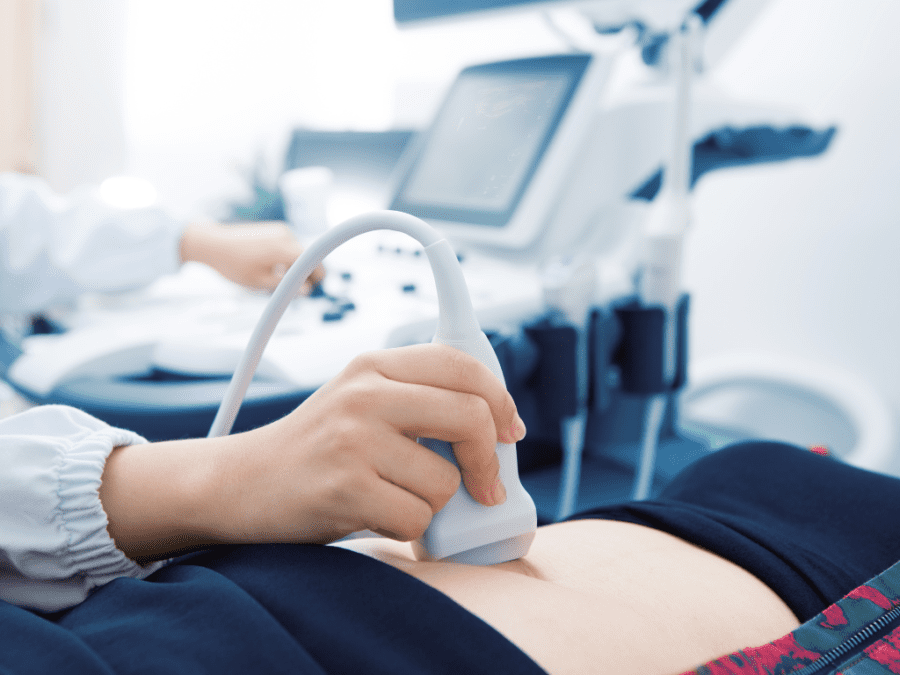Folic acid is an important nutrient for pregnant women and developing fetuses because it helps prevent birth defects. These birth defects are called neural tube defects. This vitamin can also help prevent preterm birth and other problems during pregnancy. There are different reliable ways to get enough of this nutrient, including pregnancy milk and supplements. While folic acid is a must for pregnant women especially, all women of reproductive age should get enough intake of this vitamin as well.
Table of Contents
ToggleWhat is folic acid?
Folic acid is the synthetic version of folate. Meanwhile, folate is a naturally-occurring B vitamin. It’s mainly found in leafy green vegetables, fruits, and nuts. It’s a highly beneficial vitamin that isn’t just good for pregnant women, but for everyone else as well.
In particular, folic acid is essential for pregnant women because it helps to form the neural tube for the fetus and can help prevent major birth defects in the baby’s brain and spine. It can also help prevent a variety of pregnancy complications and other physical defects, including preterm birth. Other forms of folate, however, have not been found to be effective in preventing birth defects in the same way that folic acid can.
Folic acid vs folate
It’s important to understand that folic acid and folate are not exactly the same. People often use these two terms interchangeably, though there are some differences between the two. Folate is a more general term for the many forms of vitamin B9, and it can naturally be found in a variety of foods. Folic acid, however, is not naturally occurring and can be found in supplements and fortified foods.
The most important distinction between the two is that folic acid specifically is what can prevent neural tube defects in babies. While folate in general is beneficial to everyone, including pregnant mothers and people who are not pregnant, it doesn’t prevent neural tube defects in fetuses. If you’re pregnant, you’ll need to make sure that you’re taking enough folic acid specifically, not just folate.
Thus, it’s important to be discerning when taking supplements. There are also folate supplements out there, and they can be beneficial for your health. These are the names of the different kinds of naturally occurring folate:
- L-5- MTHF
- 5-MTHF
- L-methylfolate
- methylfolate
If you see supplements that have these forms of folate, they are not the supplements you need if you’re pregnant. You’ll need folic acid specifically. Thus, make sure that you check the label of supplements and make sure that they include folic acid instead of just folate.
Proper nutrition is vital during and after pregnancy. Check out this FREE trial confinement meal from Nouriche worth $35! You can also get a free vegetarian option worth $45! You’ll also get other freebies that will help you prepare for your baby’s arrival.
What is folic acid used for?
Both folic acid and folate help form new red blood cells in the body. These red blood cells help carry oxygen throughout your body, helping you remain strong and healthy.
If you’re a woman of reproductive age, you’ll benefit from folic acid even if you’re not pregnant or not trying to get pregnant. This is because certain defects in developing fetuses can occur early on in the pregnancy, maybe even before you find out that you’re pregnant. Folic acid can prevent these defects, which means that you should take this vitamin as early as possible. If you’ve been taking this nutrient and you have an unplanned pregnancy, you won’t have to worry about folic acid deficiency.
Reproductive age is defined as the ages of 15 to 49. If you fall in this age range, it’s important to take folic acid or increase your intake in other ways.
Additionally, folate-deficiency anemia, which can cause fatigue and headaches, is common in women of reproductive age. Getting enough folic acid and folate in your system can help keep you healthy and protected from various health problems.
Sources of folic acid
There are many ways to get enough folic acid and folate in your diet. You can eat plenty of leafy green vegetables, fruits, legumes, and nuts each day. If you don’t like or don’t eat these foods regularly, you can take a multivitamin that has a sufficient amount of this vitamin or take a separate supplement.
Be sure to consult your doctor before starting any new supplements. If you’re pregnant, your OBGYN will likely prescribe a trusted and reliable folic acid supplement for you. However, if you’re not pregnant but you’re of reproductive age, you can also ask your doctor what you should do to ensure that you have enough nutrient intake.
Pregnancy milk

If you’re pregnant, one way to make sure you are getting enough folic acid is to drink pregnancy milk with this nutrient. Typically, fortified milk designed for pregnant mothers contains a variety of vitamins that can help nourish and protect a growing fetus. This includes folic acid, DHA, iron, calcium, and the like.
Drinking fortified milk can help ensure that you get your recommended daily intake of folic acid during pregnancy. Not only does fortification add nutrients like folate but it also often increases a food’s protein content as well as its calcium levels. Thus, drinking fortified milk help keep your unborn baby healthy while benefiting you as well.
The Enfamama A+ Maternal & Lactating Formula is a milk supplement that offers pregnant and lactating mothers a range of highly beneficial nutrients. It has DHA, choline, folic acid, zinc, iron, calcium, iodine, vitamin B6, and a prebiotic called inulin.
Sign up today for the Enfamama A+ Club and get free Enfamama A+ and Enfagrow A+ samples. Enfamama and Enfagrow can help you stay healthy and provide your baby with the nutrients they need to grow strong.
Supplements
If you are concerned that you are not getting enough folate, talk to your health care provider about taking a folic acid supplement. If you are pregnant, your doctor will likely direct you to take certain supplements to ensure that you have sufficient folate intake.
These supplements have also been shown to help prevent other serious problems such as heart disease, stroke, cancer, and memory loss related to aging. So even if you are not pregnant or planning on becoming pregnant anytime soon, it’s still a good idea to include plenty of foods high in folate in your diet and consider taking a multivitamin that includes folic acid.
Food
Natural folate occurs in food sources such as leafy green vegetables and legumes. A great way to get your daily dose of this B vitamin is by eating a variety of healthy foods that contain it naturally. Here are some examples of foods that can provide you with good amounts of folate:
- Broccoli
- Romaine lettuce
- Spinach
- Brussels sprouts
- Fresh fruits
- Beans
- Whole grains
- Eggs
- Seafood
- Liver
- Sunflower seeds
- Peanuts
The good news is that folate can be found in a wide variety of foods, so it’s not hard to come by. Even if you’re not pregnant, these foods are good for your health.
If you want to increase your folic acid intake specifically, you can also look for foods fortified with this nutrient. It’s important to remember that folic acid, not other forms of folate, is the nutrient that’s been found to help reduce neural tube defects.
Benefits of folic acid for pregnancy

Pregnancy is an important time for a woman to ensure she is getting the right amount of nutrients, including folic acid. This nutrient is known to be able to help prevent neural tube defects and other complications that can have a lifelong impact.
There are many benefits to ensuring adequate levels of folic acid during pregnancy. In addition to preventing birth defects, it can also help reduce the risk for other complications, such as preterm delivery and low birth weight.
Most pregnant women know that they need to take prenatal vitamins, but many may not realize the importance of folic acid. It is important for pregnant women because it helps form the neural tube, which becomes the baby’s brain and spinal cord. A lack of folic acid can lead to major birth defects in the baby’s brain and spine. This is why it is so important for pregnant women to make sure they are getting enough of this nutrient in their diet.
Many prenatal vitamins contain a certain amount of folic acid. Not only does this vitamin help prevent major birth defects, but it can also help improve pregnancy outcomes overall.
Make sure that you and your baby are taken care of during and after your pregnancy. These freebies include a limited offer Tian Wei Signature Trial Confinement Meal and other products that will keep you and your baby healthy and happy.
What are neural tube defects?
Folic acid plays an important role in preventing neural tube defects from developing. Neural tube defects are quite severe and can occur very early on in fetal development. In fact, NTDs can form even before a woman finds out that she’s pregnant. Folic acid can help prevent these defects, which is why women of reproductive age are urged to have a healthy intake of this vitamin even when they’re not yet pregnant.
Spina bifida and anencephaly are common NTDs.
Spina bifida
Spina bifida is a birth defect that happens on the spinal cord if the neural tube doesn’t close properly. When this happens, the spinal cord of a fetus might end up deformed. Someone with spina bifida can experience mild to severe physical or intellectual problems.
A doctor can detect spina bifida via ultrasound, amniocentesis, or an alpha-fetoprotein blood test while the baby is still in the womb. However, in some cases, spina bifida can be diagnosed after birth.
If you have previously been pregnant with a baby diagnosed with spina bifida, make sure to consult a doctor if you get pregnant again. You may require a higher amount of folic acid to prevent spina bifida.
Some people with spina bifida have little to no disabilities, but in certain cases, spina bifida can be debilitating. There are treatments available for spina bifida, but there is no cure. Treatment can also vary depending on the severity of the patient’s condition. Treatment options include physical therapy, braces or crutches to help with mobility, and medications to help manage symptoms. Some people also need assistive devices such as wheelchairs or walkers to get around.
Living with spina bifida can be challenging at times, but it’s also possible to live a full and happy life. Many people with spina bifida go on to college or university, have successful careers, get married, and have children of their own. With the right support from family members and professionals alike, anyone can overcome the challenges of living with this condition.
Anencephaly
Anencephaly is another form of neural tube defect. A baby with anencephaly is missing parts of their brain and skull. This condition is severe, and babies who are born with it do not survive for long after they are born. There is no cure for anencephaly, and there is also no known treatment.
Like spina bifida, anencephaly is also a neural tube defect. It would normally show up on prenatal screening tests, though it’s also immediately obvious once the baby is born. Because it’s an NTD, folic acid can help reduce the chances of a fetus developing anencephaly. However, it’s important to remember that NTDs develop early on in the pregnancy, which is why folic acid intake by women of reproductive age is important.
Pregnancy complications and birth defects

There are many potential pregnancy complications and defects that can occur during any stage of pregnancy. Some complications may be minor and resolve on their own, while others may require more intensive treatment. Birth defects, meanwhile, can impact a baby’s quality of life. It’s important for pregnant women to be aware of the various risks and symptoms associated with each complication, in order to seek timely medical care if necessary.
Studies have found that folic acid can help prevent these complications and defects. By taking the right amount of this vitamin at the right time during pregnancy, mothers can protect their health and that of their baby.
Anemia
Women are likely to develop at least a mild form of anemia during pregnancy. Anemia occurs when there are not enough red blood cells to carry adequate oxygen levels to the tissues and organs. This can lead to fatigue, difficulty breathing, and a variety of other issues.
The good news is that anemia can be treated with iron supplements and by increasing your intake of foods rich in iron such as meat, poultry, fish, legumes, green leafy vegetables, and fortified cereals. If you are pregnant and have symptoms of anemia, it is important to see your doctor for diagnosis and treatment.
Folic acid and iron can help reduce or even prevent anemia in pregnant women. If you feel like you’re experiencing anemia symptoms, make sure to inform your doctor.
Preterm birth
One complication is preterm birth, which is defined as birth before 37 weeks. Preterm birth increases the risks of health issues in babies, and can also sometimes result in neonatal death.
Studies have found that higher levels of folic acid and folate intake in pregnant mothers are associated with lower chances of preterm birth. This isn’t to say that higher levels of these nutrients definitely reduce the chances of preterm birth, but there is evidence that there is a correlation. This nutrient may thus help ensure that you carry your baby to term.
Cleft lip and palate
There is also evidence that folic acid intake early on in pregnancy can help protect fetuses from developing cleft lip and palate.
A cleft lip or palate is a birth defect that affects the upper lip or roof of the mouth. It occurs when these parts do not fuse together properly during development in the womb. Most children with a cleft lip or palate need surgery to correct the defect. This usually happens within the first year after birth. Surgery can help improve speech, eating, and breathing problems caused by a cleft lip or palate.
How much folic acid to take

The Centers for Disease Control and Prevention (CDC) urges women of reproductive age to take 400 mcg of folic acid every day, in addition to the folate they get from folate-rich foods. If you get pregnant, you should keep taking this same amount of this vitamin until you’re 12 weeks along.
Folic acid is crucial until 12 weeks because, by that time, it’s expected that the fetus’s neural tube will have already closed. Once the neural tube is closed, the fetus will no longer need much of this nutrient.
Some women may need to take a higher dose of folic acid if they or the baby’s father have NTDs, or have a family history of NTDs. If you’ve had a previous pregnancy affected by an NTD, you’ll also need a higher dose of this vitamin.
If you have diabetes or you take anti-epilepsy or HIV medicine, make sure to inform your doctor. You will also likely be prescribed a higher dose of this vitamin.
When to take folic acid
If you are a woman between the ages of 15 to 49, you should consider taking folic acid in one form or another. If you’re not pregnant, you can eat folic acid-fortified foods. Your doctor might also prescribe supplements, depending on your situation.
Taking 400 mcg of folic acid is also important if you’re planning on trying for a baby. This way, you’ll already be taking the right amount of this vitamin when you do get pregnant. Your baby will then have protection against NTDs even before you find out that you’re pregnant.
References
- https://www.cdc.gov/ncbddd/folicacid/faqs/faqs-general-info.html
- https://www.womenshealth.gov/a-z-topics/folic-acid
- https://www.hsph.harvard.edu/nutritionsource/folic-acid/
- https://www.who.int/data/maternal-newborn-child-adolescent-ageing/indicator-explorer-new/mca/women-of-reproductive-age-(15-49-years)-population-(thousands)
- https://www.nhs.uk/conditions/vitamin-b12-or-folate-deficiency-anaemia/treatment/
- https://www.cdc.gov/ncbddd/birthdefects/facts-about-neural-tube-defects.html
- https://www.cdc.gov/ncbddd/spinabifida/facts.html/
- https://www.cdc.gov/ncbddd/birthdefects/anencephaly.html
- https://www.hematology.org/education/patients/anemia/pregnancy
- https://www.ncbi.nlm.nih.gov/pmc/articles/PMC6892975/






